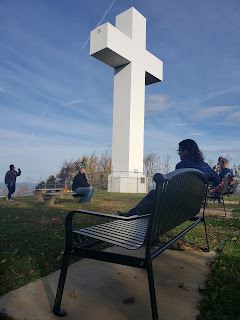 As my wife Jamie and I headed out to this year's United Methodist Camp & Retreat Leaders' Gathering on the previous Sunday, I kept trying to sort out what I wanted to get out of this conference. Was there an area of camp I needed help with? A new program to explore? To be honest, though, I didn’t want to go on this trip. The prospect of losing a week of office time felt like too much right now. There is so much to do (as there always is) and in addition, there are so many new considerations as we weigh rising costs of goods and labor while trying to project just what next summer might look like. Too much to do…always too much to do…!
As my wife Jamie and I headed out to this year's United Methodist Camp & Retreat Leaders' Gathering on the previous Sunday, I kept trying to sort out what I wanted to get out of this conference. Was there an area of camp I needed help with? A new program to explore? To be honest, though, I didn’t want to go on this trip. The prospect of losing a week of office time felt like too much right now. There is so much to do (as there always is) and in addition, there are so many new considerations as we weigh rising costs of goods and labor while trying to project just what next summer might look like. Too much to do…always too much to do…!
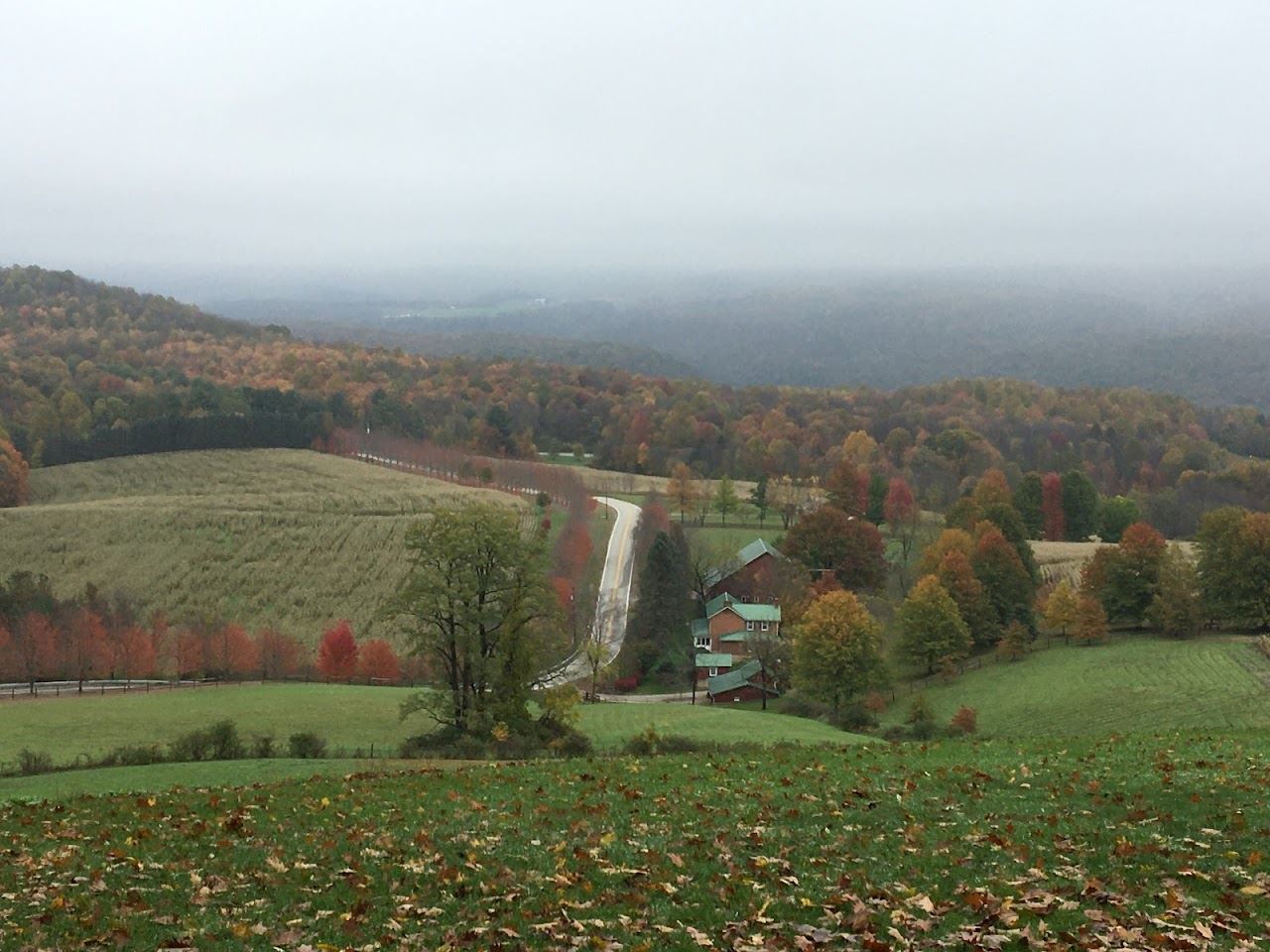 I wasn’t alone in my reluctance. Before the event I heard from two other camp directors with the same concern, and when we arrived, I heard it echoed by several more. The urgency, the anxiousness, the relative levels of burnout we all were experiencing were fooling us, though. In times like this, sometimes the best thing one can do is step away for some better perspective.
I wasn’t alone in my reluctance. Before the event I heard from two other camp directors with the same concern, and when we arrived, I heard it echoed by several more. The urgency, the anxiousness, the relative levels of burnout we all were experiencing were fooling us, though. In times like this, sometimes the best thing one can do is step away for some better perspective.
Four days later, I more fully understand the perspective I needed God to bring to me. Or more accurately, all the ways that God found to remind me of who I am, who God is, and where God continues to call me (and many others) to. These reminders didn't come in the ways I expected. Then again, how often does the Spirit move on our schedules or fit into our expectations?
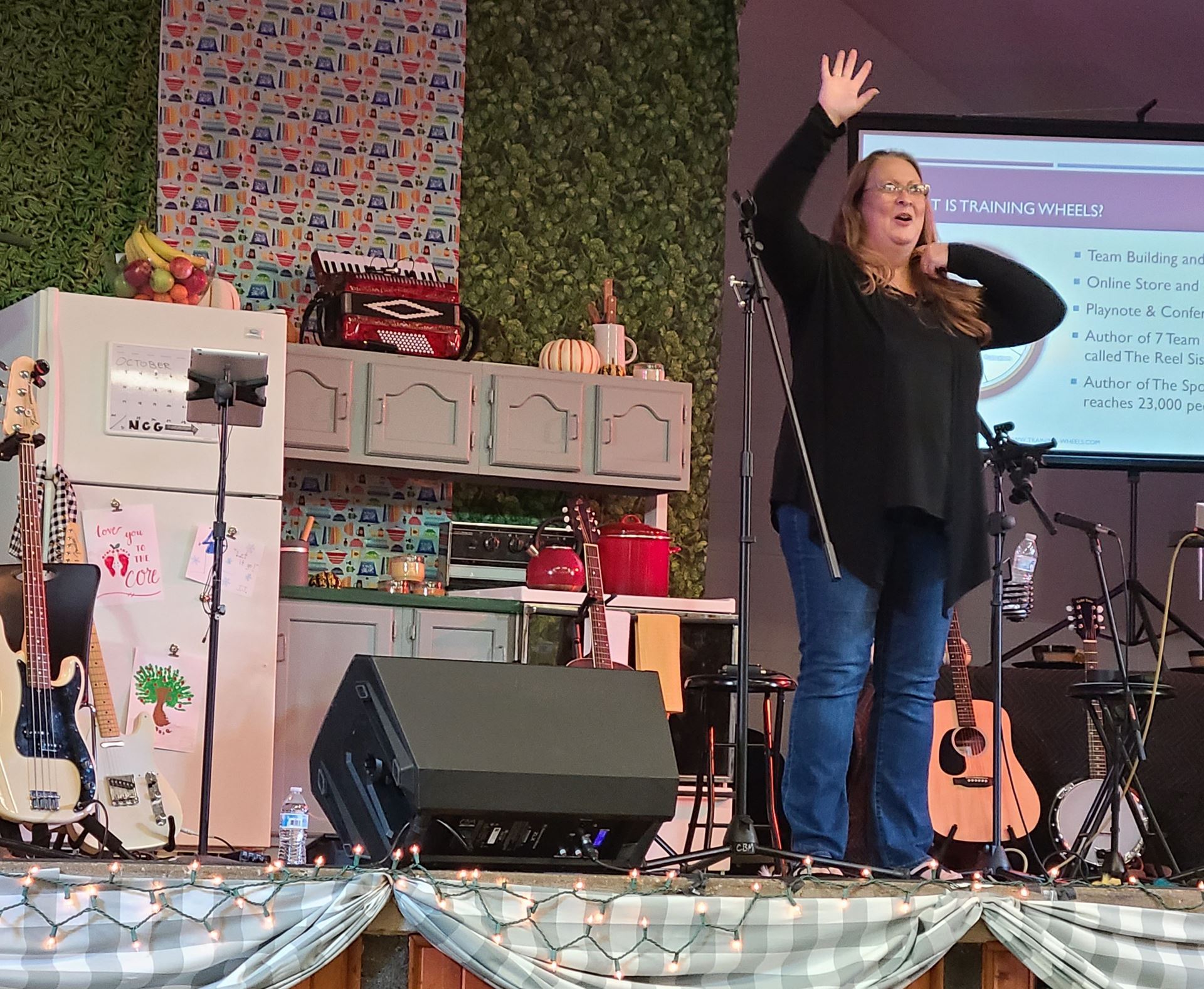 Keynote sessions, led by Michelle Cummings, were engaging and full of energy. One of her first activities paired us up with a set of question cards with three different levels of "difficulty” from the most superficial to the more vulnerable. The questions likely would feel relatively innocent with a group of campers, but among our participants in this setting each question felt laden with deep emotion. Our room full of professional facilitators could anticipate the activity's outcomes, and many of us were ready to lean into the emotional transparency that might take other groups hours to develop. It was a simple activity, but the value of giving choice to the questions we ask was a useful takeaway.
Keynote sessions, led by Michelle Cummings, were engaging and full of energy. One of her first activities paired us up with a set of question cards with three different levels of "difficulty” from the most superficial to the more vulnerable. The questions likely would feel relatively innocent with a group of campers, but among our participants in this setting each question felt laden with deep emotion. Our room full of professional facilitators could anticipate the activity's outcomes, and many of us were ready to lean into the emotional transparency that might take other groups hours to develop. It was a simple activity, but the value of giving choice to the questions we ask was a useful takeaway.
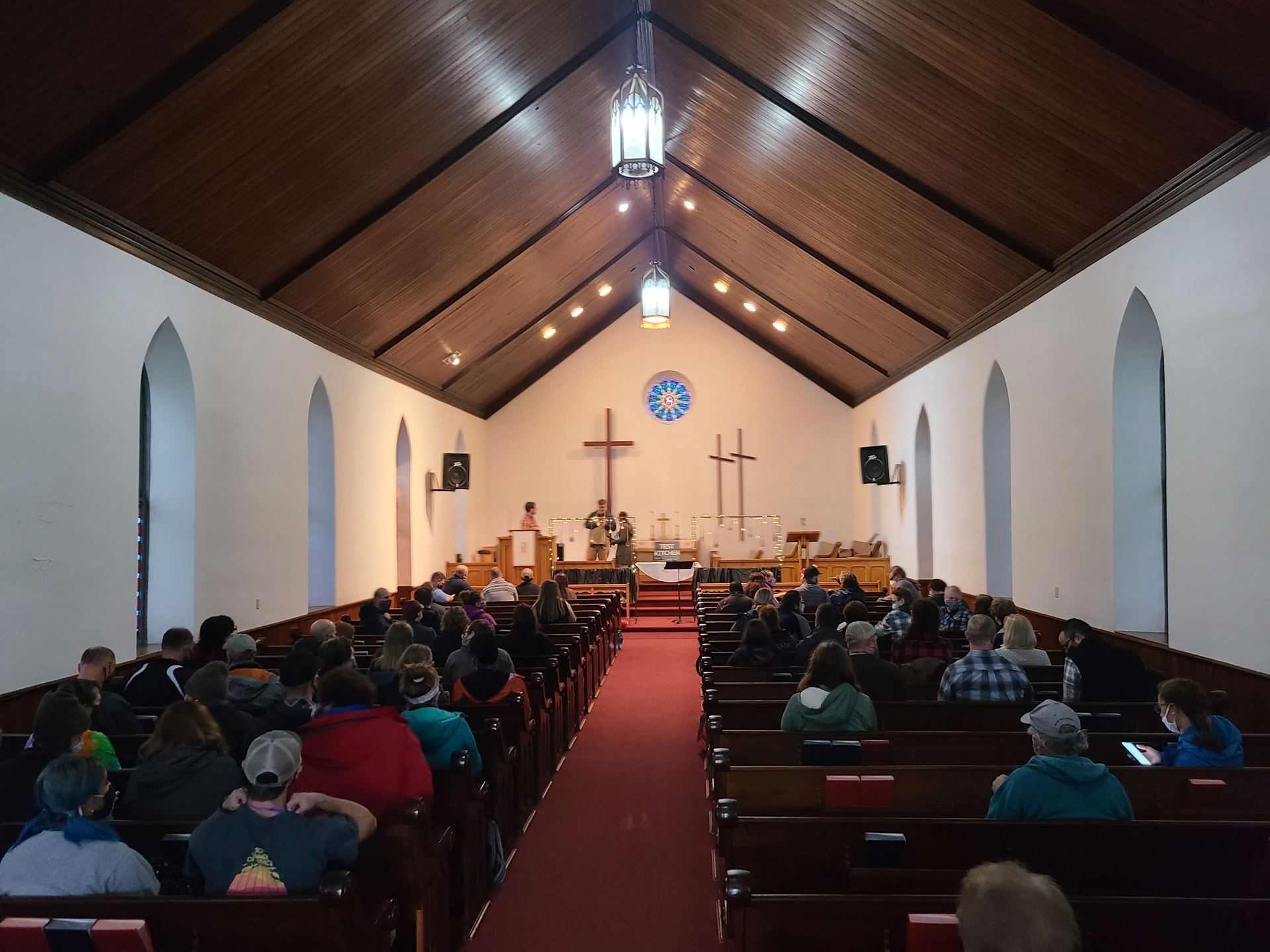 Rev. Matthew Johnson led our morning Bible study time in a beautiful old chapel that dated back to 1882. His messages were consistently personal: reflections on his time with family, his youth, and the challenges of ministry. After breakfast, his way of opening the scriptures felt like comfort food each day with warmth and a subtle hint of humor.
Rev. Matthew Johnson led our morning Bible study time in a beautiful old chapel that dated back to 1882. His messages were consistently personal: reflections on his time with family, his youth, and the challenges of ministry. After breakfast, his way of opening the scriptures felt like comfort food each day with warmth and a subtle hint of humor.
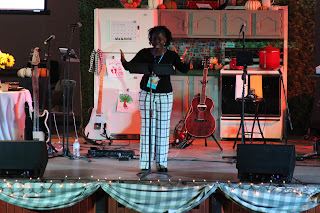 Rev. Tiffany Knowlin Boykin and Rev. Raphael Koikoi preached for our evening worships. Most memorable to me were the words of Rev. Knowlin Boykin as she addressed the condition of our hearts as we have navigated this difficult couple of seasons. While her pastoral ministry context differs from ours, she found words that fit our reality in camp and retreat ministry. It was a good reminder that what we have experienced in our ministry settings is not wholly unique, but rather one facet of a difficult common challenge as we all tried to find new ways to serve people at a distance.
Rev. Tiffany Knowlin Boykin and Rev. Raphael Koikoi preached for our evening worships. Most memorable to me were the words of Rev. Knowlin Boykin as she addressed the condition of our hearts as we have navigated this difficult couple of seasons. While her pastoral ministry context differs from ours, she found words that fit our reality in camp and retreat ministry. It was a good reminder that what we have experienced in our ministry settings is not wholly unique, but rather one facet of a difficult common challenge as we all tried to find new ways to serve people at a distance.
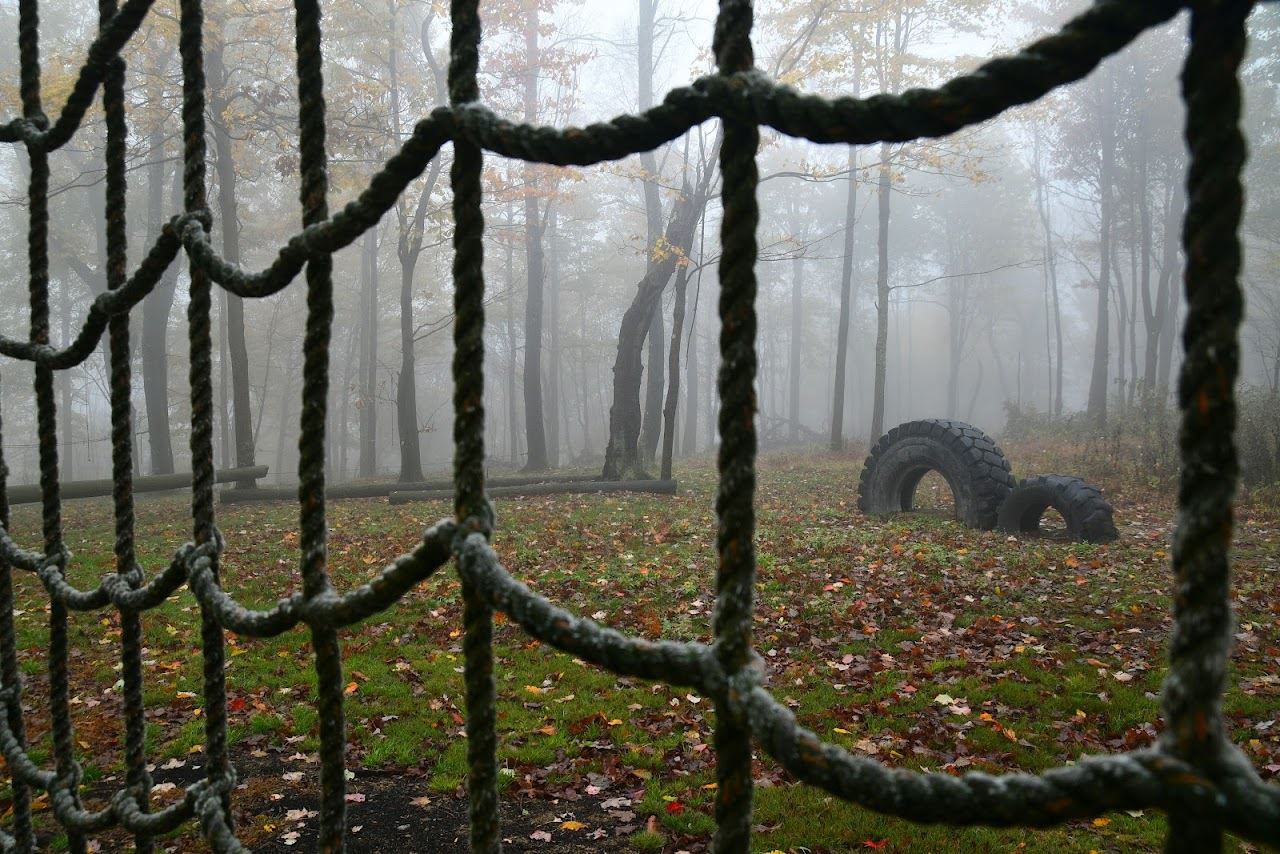 While the programmed parts of the Gathering provided meaningful applications, perhaps the most profound reminder that I needed to receive came during Wednesday free time. My wife Jamie and I joined our friend James Tresner to play a round of disc golf on the camp's course. Our ability levels were all over the place. I had played a lot of disc golf in college, to the point that on the day before our wedding, I played 72 unique holes with the men in my wedding party, deciding our procession order based on our scores. In contrast, James had only played one other time, but his upbeat attitude outweighed any frustration an errant throw would cause many others. And while Jamie had possibly the best short game of all of us, her long throws were…less than long. Ability levels mattered very little here, though. At the site’s relative elevation, we found ourselves playing in a dense cloud – the thickest fog you can imagine. The weather was like this most of the week, almost as if instead of leading us by a cloud, God had decided just to place us directly in one instead. From the first tee, we looked for the goal basket and despite squinting and some rough maps, we ultimately had to guess. We would throw in a general direction, hoping we were near the target. As we moved towards our second throws, one of us would likely see the goal, sharing with the others how close (or far off) we were. We talked, we laughed, and made our way through each fog-covered puzzle.
While the programmed parts of the Gathering provided meaningful applications, perhaps the most profound reminder that I needed to receive came during Wednesday free time. My wife Jamie and I joined our friend James Tresner to play a round of disc golf on the camp's course. Our ability levels were all over the place. I had played a lot of disc golf in college, to the point that on the day before our wedding, I played 72 unique holes with the men in my wedding party, deciding our procession order based on our scores. In contrast, James had only played one other time, but his upbeat attitude outweighed any frustration an errant throw would cause many others. And while Jamie had possibly the best short game of all of us, her long throws were…less than long. Ability levels mattered very little here, though. At the site’s relative elevation, we found ourselves playing in a dense cloud – the thickest fog you can imagine. The weather was like this most of the week, almost as if instead of leading us by a cloud, God had decided just to place us directly in one instead. From the first tee, we looked for the goal basket and despite squinting and some rough maps, we ultimately had to guess. We would throw in a general direction, hoping we were near the target. As we moved towards our second throws, one of us would likely see the goal, sharing with the others how close (or far off) we were. We talked, we laughed, and made our way through each fog-covered puzzle.
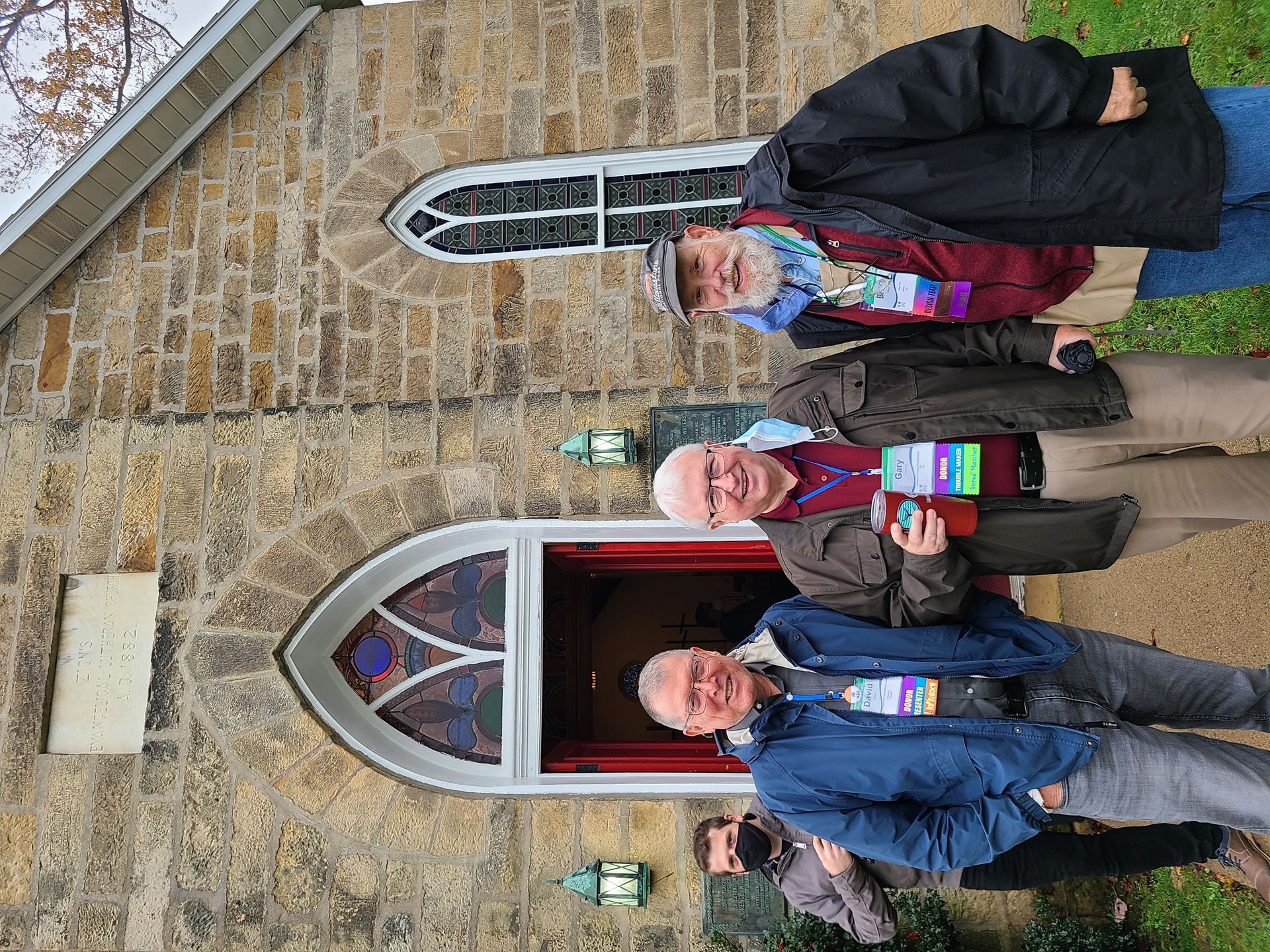 God showed up again through this experience with an important reminder for me. I was reminded that in the last 18 months, things that were once easy had become obscured and seemingly impossible. When I tried to muddle through alone, it was frustrating at best. But when I did the work alongside others, especially friends and colleagues who were looking for similar paths, it was always a better, more successful experience. While today we’re weary of countless Zoom meetings, back when this pandemic began those points of connection helped us sketch a roadmap with crayon as together we did our best to map out a future. God does not wish for us to navigate hard things alone; we are always better together.
God showed up again through this experience with an important reminder for me. I was reminded that in the last 18 months, things that were once easy had become obscured and seemingly impossible. When I tried to muddle through alone, it was frustrating at best. But when I did the work alongside others, especially friends and colleagues who were looking for similar paths, it was always a better, more successful experience. While today we’re weary of countless Zoom meetings, back when this pandemic began those points of connection helped us sketch a roadmap with crayon as together we did our best to map out a future. God does not wish for us to navigate hard things alone; we are always better together.
During those travels together, conversations are shared as vulnerabilities come to the surface. As we navigate the fog of this season, our burdens are shared with the hope that solutions can be found. But no matter where the path leads, the balm of a compassionate heart can help us get through.
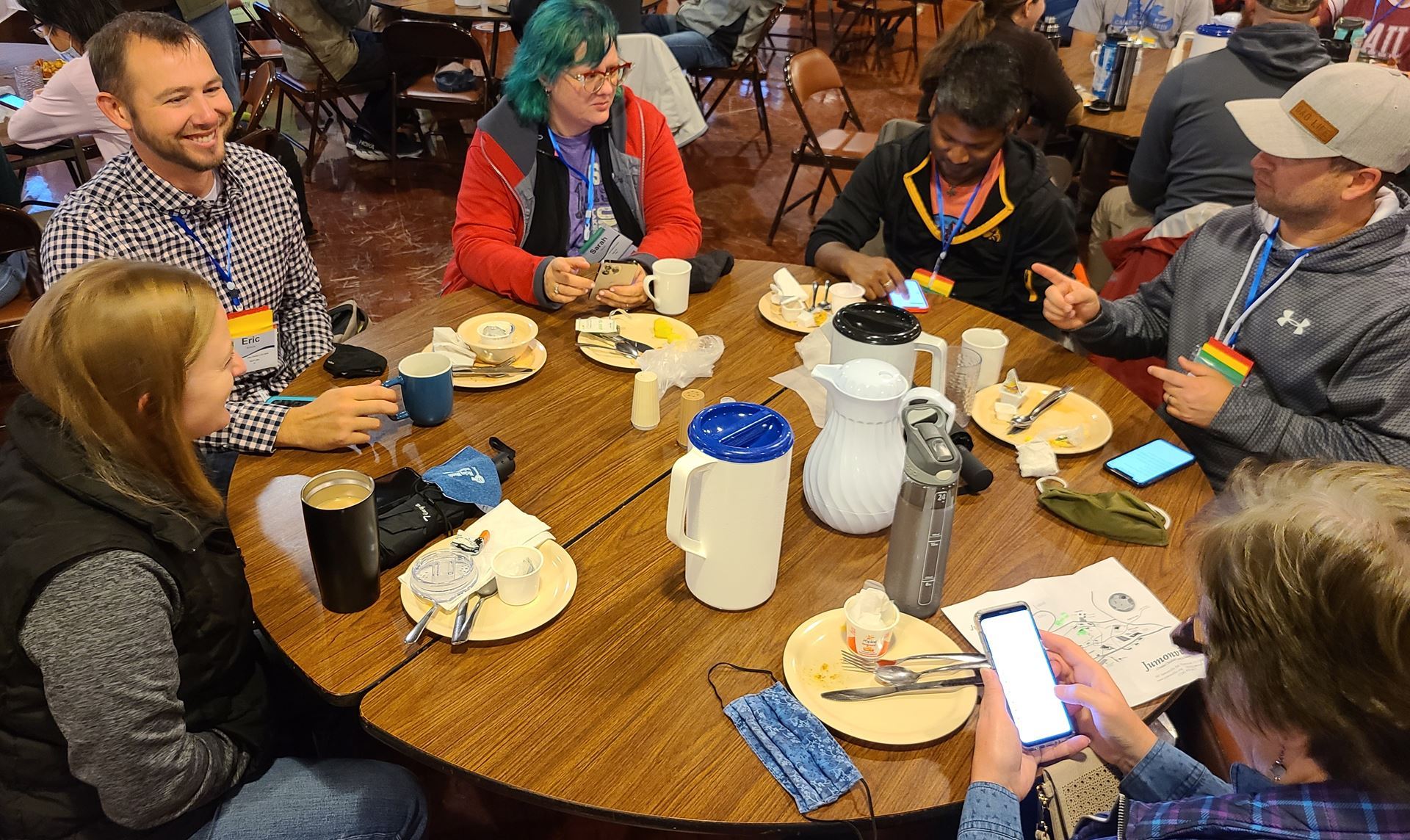 Every facet of this conference had a purpose. God used these moments to reach our hearts and remind our souls as well. This time, when many of us felt so beat up and pressed upon by so much beyond our control, the greatest gift was simply remembering how to be the wonderful, messy, human creations that God called us to be. And despite our mess, time in community reminded us that we were never alone, finally close enough to share a meal around a table, sharing the scars of a tough season and the stories of unexpected joy that continue to make it all worthwhile.
Every facet of this conference had a purpose. God used these moments to reach our hearts and remind our souls as well. This time, when many of us felt so beat up and pressed upon by so much beyond our control, the greatest gift was simply remembering how to be the wonderful, messy, human creations that God called us to be. And despite our mess, time in community reminded us that we were never alone, finally close enough to share a meal around a table, sharing the scars of a tough season and the stories of unexpected joy that continue to make it all worthwhile.
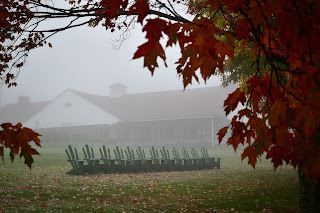 One last note that I can’t forget – Jamie and I both agreed that we haven’t laughed as much in the last year as we did this week. I haven’t laughed very much at all recently. But surrounded by so many who truly understand the complexities of life at camp, it was as though the tightness in my soul finally released so joy could be restored. The greatest gift of events like this is the friends we leave with, scattering all over the country once again. These are not only partners in ministry, but brothers and sisters in Christ who know the beautiful sacrifice that a calling to camp/retreat ministry often requires. May we all return safely to the places we call home and the places we share God’s love. May God bless us until we meet again, keeping us safe, protecting those who come through our sites, drawing both ever closer to the goodness that we felt this week.
One last note that I can’t forget – Jamie and I both agreed that we haven’t laughed as much in the last year as we did this week. I haven’t laughed very much at all recently. But surrounded by so many who truly understand the complexities of life at camp, it was as though the tightness in my soul finally released so joy could be restored. The greatest gift of events like this is the friends we leave with, scattering all over the country once again. These are not only partners in ministry, but brothers and sisters in Christ who know the beautiful sacrifice that a calling to camp/retreat ministry often requires. May we all return safely to the places we call home and the places we share God’s love. May God bless us until we meet again, keeping us safe, protecting those who come through our sites, drawing both ever closer to the goodness that we felt this week.

Nick Coenen is Director of Pine Lake United Methodist Camp & Retreat Center in Wisconsin, where he shares life, ministry, and parenthood with Jamie Coenen, Pine Lake's Program Coordinator. Nick has bravely agreed to serve as a co-Chair of the Design Team for UMCRM's next National Gathering.

